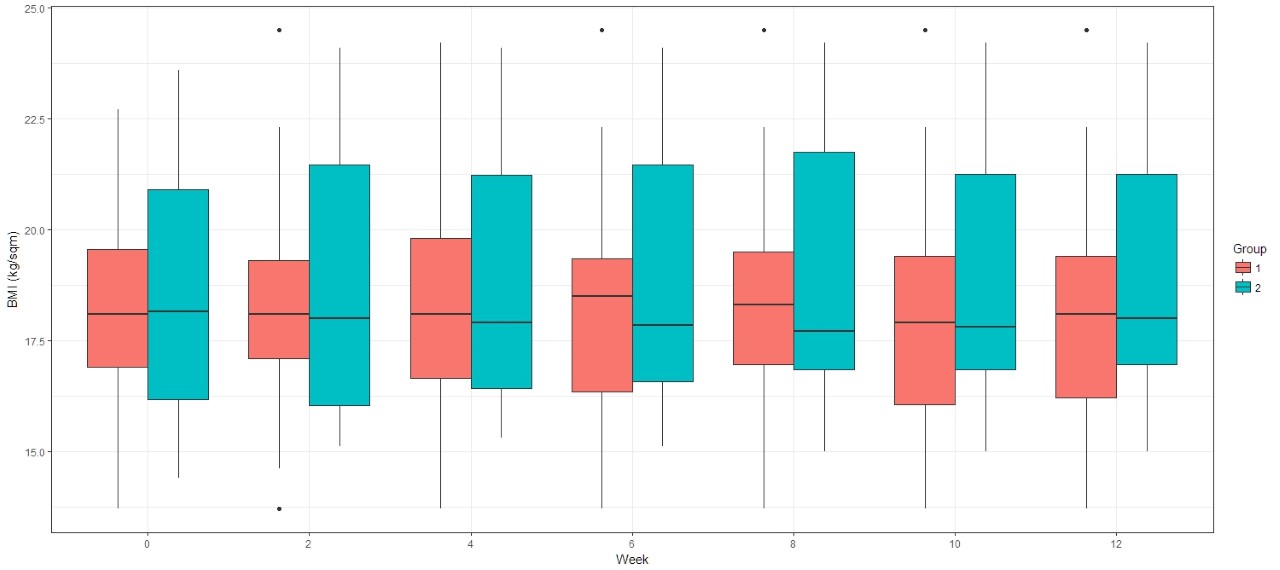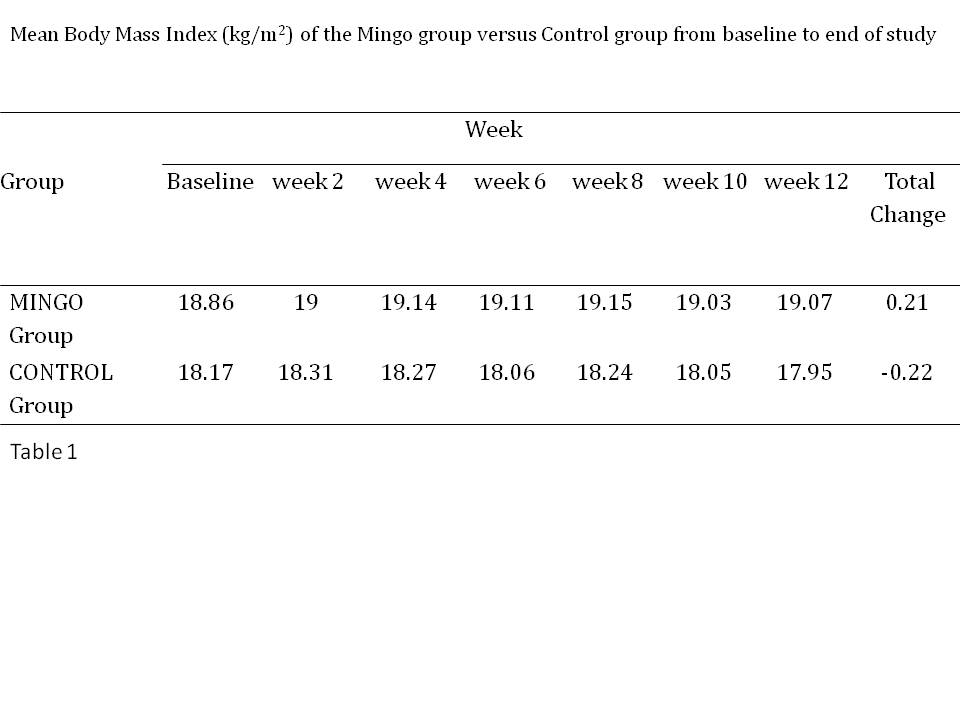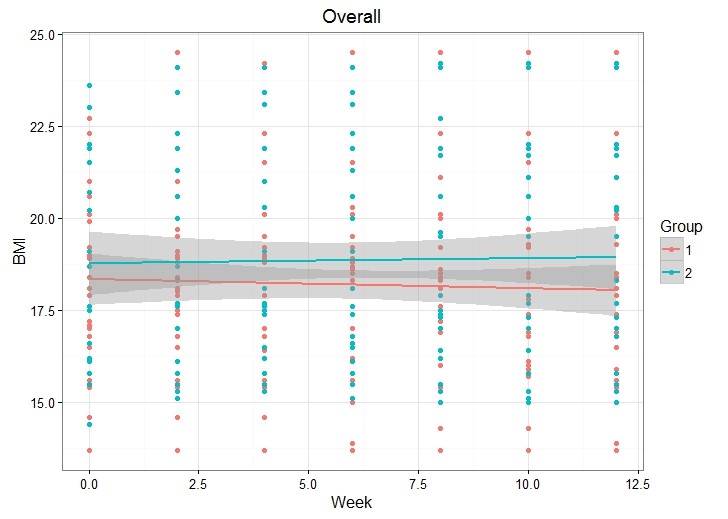Session Information
Date: Sunday, October 7, 2018
Session Title: Dystonia
Session Time: 1:45pm-3:15pm
Location: Hall 3FG
Objective: To see whether increasing the caloric intake of patients by 480 calories per day using a locally sourced food supplement, Mingo, would raise the BMI of XDP patients compared to XDP control group.
Background: X-linked dystonia parkinsonism (XDP, formerly known as DYT3) occurs primarily in Filipino males and is characterized by neurodegenerative dystonia and parkinsonism. XDP patients suffer from severe nutritional loss due to symptoms such as dysphagia, loss of appetite, and consistently high metabolic requirements brought about by their movement disorder. Approximately 79% of patients with XDP have experienced rapid weight loss since the onset of their disease. MINGO is a supplement consisting of local ingredients such as moringa, rice and mung beans, which can be added to any type of edible paste, food, and liquid. It is the aim of the researchers to assess the clinical usefulness of adding MINGO as a nutritional supplement to the daily dietary needs of these patients, thereby increasing their BMI.
Methods: We enrolled 50 clinically diagnosed X-linked Dystonia-Parkinsonism men in an open-labeled prospective randomized-controlled trial in Capiz, Philippines to examine the effects of 480 calories of MINGO food supplementation on their body mass index (BMI). The mean BMI taken in 2 week intervals for 3 months was used as the primary endpoint. Secondary endpoints include the mid-upper arm circumference (MUAC) taken at monthly intervals, hospitalizations and death. We used a mixed effects linear regression model using R to analyze the data.
Results: The primary outcome was the mean BMI of subjects who took MINGO vs Control at week 12 as follows 19.07[95% CI, 17.83-20.31] vs 17.95 [95% CI, 16.90-18.99]. The secondary outcome was the mean MUAC of MINGO vs Control at week 12 as follows 26.69 [95% CI, 25.41-27.97] vs 26.62 [25.03-28.18], no hospitalizations, and 1 death in the control group.
Conclusions: Although there seems to be trend towards improvement in BMI of the MINGO supplementation vs Control, the fact that the BMI’s 95% CI significantly overlaps in both MINGO vs Control groups as well as comparing the primary outcome from baseline shows that supplementation with 480 calories per day does not seem to impact the BMI. Similarly, the secondary outcome shows that there seems to be no significant difference between MINGO and Control groups either from each other or from baseline.
References: 1) The unique phenomenology of sex-linked dystonia parkinsonism (XDP, DYT3, “Lubag”). Lee LV, Rivera C, Teleg RA, Dantes MB, Pasco PM, Jamora RD, Arancillo J, Villareal-Jordan RF, Rosales RL, Demaisip C, Maranon E, Peralta O, Borres R, Tolentino C, Monding MJ, Sarcia S. Int J Neurosci. 2011;121 Suppl 1:3-11. 2) Socioeconomic and demographic data of X-linked Dystonia Parkinsonism (XDP) patients in Panay Island, Philippines. Solinap G,Acuna P, Aguil A, Go C, Sharma N (unpublished).
To cite this abstract in AMA style:
P. Acuna, G. Solinap, M. Ang, J. de Guzman, C. Go. Mingo Supplement Trial: An Open-Labeled Randomized-Controlled Trial in X-linked Dystonia-Parkinsonism patients in the Province of Capiz, Philippines [abstract]. Mov Disord. 2018; 33 (suppl 2). https://www.mdsabstracts.org/abstract/mingo-supplement-trial-an-open-labeled-randomized-controlled-trial-in-x-linked-dystonia-parkinsonism-patients-in-the-province-of-capiz-philippines/. Accessed February 4, 2026.« Back to 2018 International Congress
MDS Abstracts - https://www.mdsabstracts.org/abstract/mingo-supplement-trial-an-open-labeled-randomized-controlled-trial-in-x-linked-dystonia-parkinsonism-patients-in-the-province-of-capiz-philippines/



